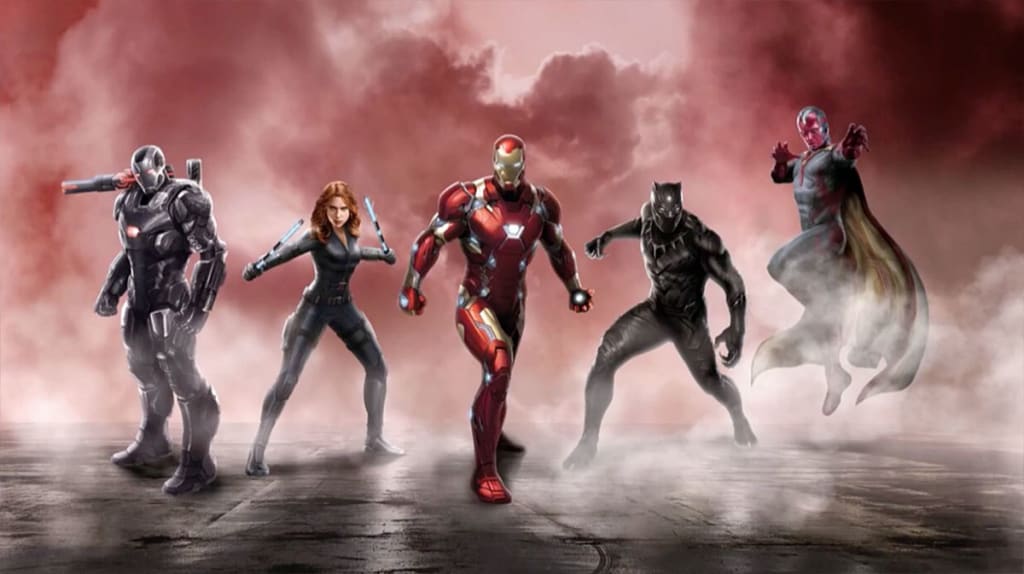
With the release of Captain America: Civil War, Marvel diverted a small part of their advertising budget to a more unusual approach. Just before the release of Ant-Man, Marvel set up WHIH World News, an in-universe YouTube and Twitter channel that reports on the news from inside the Marvel Cinematic Universe. Take a look at their latest episode, which helps immerse us in the MCU before the events of Captain America: Civil War.
It's tremendously cool - right down to extra details in the ticker tape at the bottom of the screen! But it also marks an intriguing departure from the traditional cinematic approach, one that - if followed - could lead to our films borrowing a trick from immersive theatre.
What is immersive theatre?

There's a tradition in the theatres to create plays that somehow involve the audience - in which the audience don't just simply sit on a seat and watch the show, but are instead somehow made a part of it. As The Space explains:
In an immersive theatre production, the audience in some way plays a role, whether that is the role of witness or the role of an actual character. They may be allowed to roam and explore the performance space as the performance happens around them, allowing them to decide what they see and what they skip. They might be herded from room to room so they see the key scenes. They might even be invited to become a more active part of the performance. The lines between performer and audience and between performance and life are blurred. The audience is placed within the environment of the story and therefore play witness front and centre to the events without the distancing factor of a proscenium.
The most extreme example is possibly the Tony Award-winning Best Musical, The Mystery of Edwin Drood. In this show, the audience actually voted on who they thought killed the title character; the results of the vote dictated one of seven alternate endings to the production!
Is 3D the way forward?
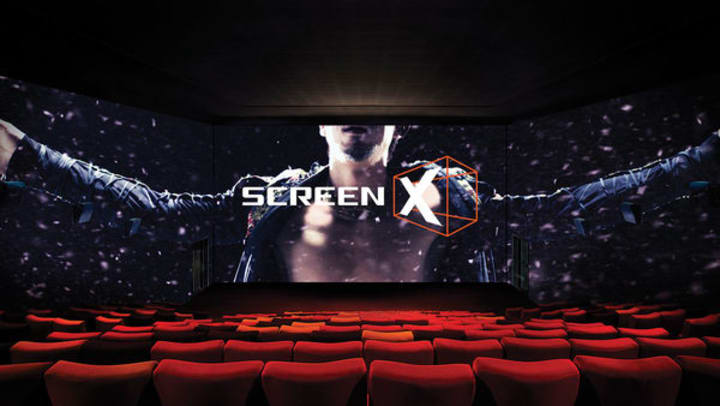
The desire to create truly immersive experiences is one that's driven films for years - after all, IMAX brands itself as "the world's most immersive movie experience"! 3D was supposed to be all about immersive cinema, but the experiment has been less than successful. While some films really showed the power of 3D - I'm thinking of Inception and Avatar in particular - the majority of movies were hastily adapted to 3D in an attempt to get extra cash. As Deadline has reported, the number of 3D films being released has dropped, and an increasing number of viewers are choosing traditional 2D.
In 2013, South Korea's ScreenX tried a different approach. ScreenX created a sort of 3D-Cave, where 3D images were projected on not one but three screens around you. In the US, Barco has launched Barco Escape, a similar idea. It remains to be seen how successful this will be; given the costs of transforming traditional cinemas into 3D-caves, I suspect it won't catch on.
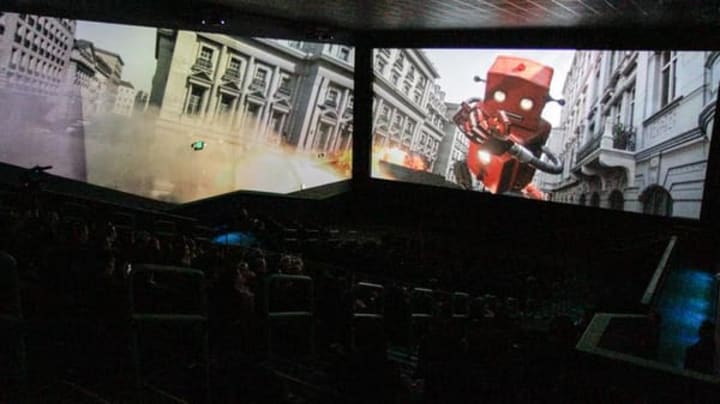
But Captain America: Civil War follows another path - albeit one that has been walked before...
Immersing Your Audience in the World You're Creating

Yes, the Doctor has been here before!
Back in 2005, Russell T. Davies was responsible for breathing new life into an old franchise. He convinced the BBC to let him relaunch iconic sci-fi series Doctor Who, but he took an unusual approach when doing so. Whenever the series was based in the present-day, he used the internet to embed the show in the viewer's world.
My favourite was the UNIT website, which even included two secure areas!
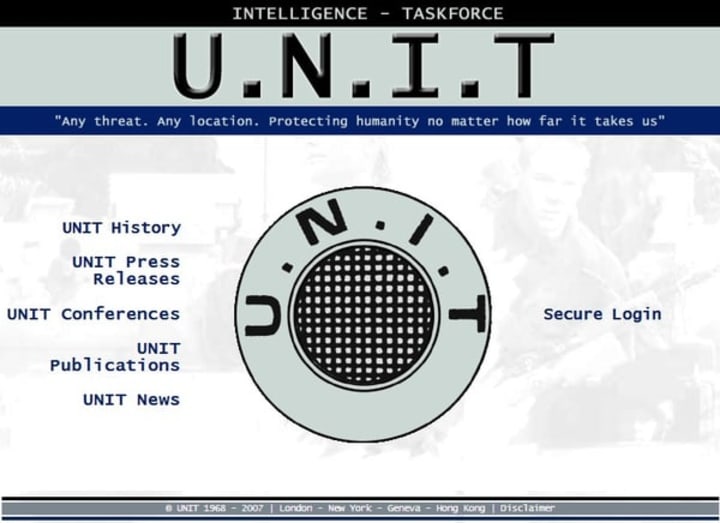
Sadly, the secure areas - which included one UNIT soldier's personal notes on the Doctor, and a program for flying missiles! - have been deactivated as the years have gone by.
Perhaps the best example of modern-day immersion is in The Lizzie Bennet Diaries. The first digital series to receive an Emmy Award, for Outstanding Creative Achievement in Interactive Media, the series reimagined Elizabeth Bennet from Pride and Prejudice as a vlogger. Incredibly, this was actually before vlogging became the powerful movement it is now. In The Lizzie Bennet Diaries, actors played adaptations of the key characters. They interacted with comments in-character, and even responded to popular Q&As!
Where The Lizzie Bennet Diaries really shone, though, was in their use of other social media to interact with fans. The characters all had pages set up on popular social media channels - Jane, for example, had a Pinterest account where she posted on fashion.
The point is that social media can be used to create a tremendously immersive experience. Marvel have dipped their toe in the water with WHIH World News, creating an in-universe news report. It's even featured fun interviews with the likes of PymTech CEO Darren Cross, released prior to Ant-Man - watch it and see just how many easter eggs Marvel gave away!
The problem is, WHIH World News is clearly funded by Marvel Studios' advertising budget, which means episodes are only released prior to a film's launch. To create a truly immersive experience, Marvel need to do more. Just as the MCU itself embraces the work of both Marvel Studios and Marvel Entertainment, so WHIH World News can do the same. Agents of S.H.I.E.L.D. included a beautiful easter egg to a news report on riots in Hell's Kitchen (as seen in Daredevil Season 2). Imagine if WHIH World News' report had actually been released. Likewise, the show has featured occasional moments when the S.H.I.E.L.D. team have watched news reports, including presidential announcements; those, too, could have been released using WHIH World News.
The MCU is always moving, always changing; from 2017 to 2019, there'll be three Marvel movies every year. Marvel Entertainment have announced ten projects to date, with at least one more rumoured to be in the works. There's real potential to use social media to create an immersive experience.
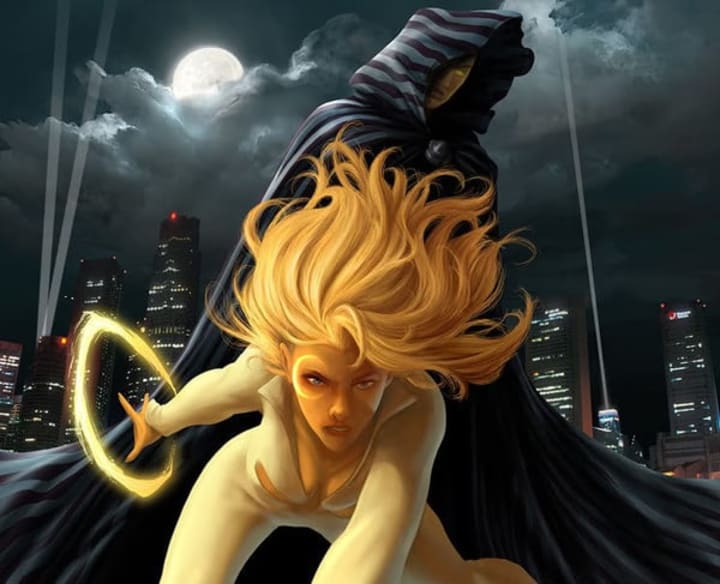
Maybe a report on teenage runaways before THIS?
What about Rising Tide, the hacker group from Agents of S.H.I.E.L.D. Season 1 whose importance has dwindled since the events of Captain America: The Winter Soldier? Set up an anonymous Twitter feed, with them discussing government regulation of superhuman activities, and just keep drip-feeding 'breaking news' through it. Give Stark Industries a website, with posts on the latest advances in Stark technology that will actually support the Avengers. The point is, you make the universe immersive, with fans able to react to it in social media channels as though it's part of the real world.
This isn't just something the MCU could do, though. Any brand could exploit this, with minimal effort; imagine if, before Jurassic World, we'd had a mock website advertising the theme-park, or even a YouTube 'advert' that simply uses footage from the film? These are simple ways to increase the hype for a movie, that may well pay off big-time.
It's entirely possible that the future of immersive cinema lies not on the big screen itself, but in the social media channels we constantly interact with. I'm hoping that WHIH World News will be the first step in a much bigger immersive experiment, one that truly exploits the power of social media.
About the Creator
Tom Bacon
A prolific writer and film fan, Tom has a deep love of the superhero genre.


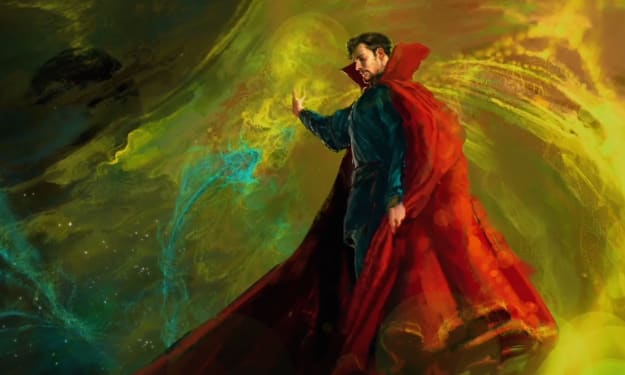



Comments
There are no comments for this story
Be the first to respond and start the conversation.